OP-ED
Will the government allow Tehuis hostel to become the next Glebelands? (Part 2)
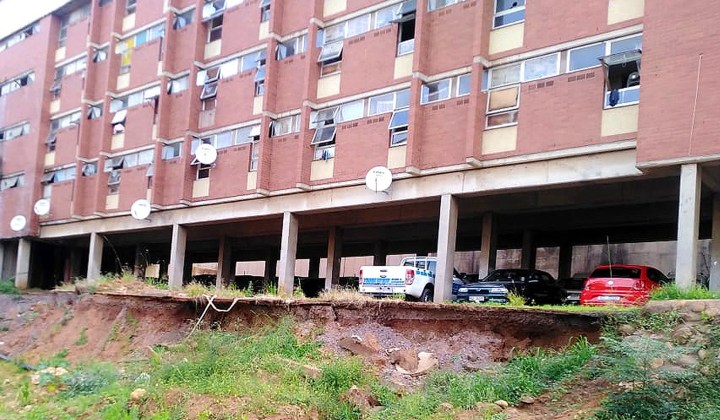
A storm is brewing at Tehuis Hostel in Umlazi, Durban, threatening similar carnage to that which decimated nearby Glebelands, which, from 2014 to 2018, had a murder rate nearly four times the national average and almost double that of the Yemen conflict. Local leaders are now doing their best to stop a similar catastrophe from developing at Tehuis. But, as with Glebelands, it seems powerful political interests are being put before the lives of the community.
Part 2 of a two-part series: See Part 1, The government risks Tehuis Hostel becoming the next Glebelands here.
Tehuis hostel in Umlazi, Durban, was built in the 1980s primarily to house former South African Transport Service (SATS) staff. When SATS morphed into Transnet in 1990, Transnet Housing (later the state-owned entity Transnet Properties) became responsible for hostel administration. In the late 1980s the predominantly ANC-supporting Tehuis community was often at war with its then pro-Inkatha neighbours at Glebelands hostel. But by the early 1990s the IFP was driven from Glebelands and both hostels have since remained loyal to the ANC.
Like most hostels, Tehuis residents are represented by block committees. These community structures liaise with hostel management on maintenance, room allocation and local development issues. While not perfect and sometimes accused of petty corruption such as “bed selling” (the illegal sale of shared room space), these structures are critical for maintaining communication and order in the vast, often anarchic hostel communities where conditions have changed little since apartheid.

Grounds are neglected and water and sewage leaks are a permanent feature at Tehuis despite an on-site contractor being resident at the hostel. (Photo supplied)
As pointed out by a former Glebelands block leader, “if you don’t have structures and strict controls in place when living like we do, on top of each other, criminals can quickly take over. We know everyone’s backgrounds, their politics, their families and the areas they come from. When someone new comes, we investigate to make sure they are not running from police. Then we allocate them to a room where we know it should not cause conflict with people already staying there. If it does, we move them. When criminals try to hide here, we can hand them over to the police. We can’t afford outside people bringing us trouble – life is difficult enough.”
Tehuis also has a business forum established two years ago to promote local employment. Frustrated at being unable to garner work (for reasons dealt with later), the forum apparently recently hooked up with the notorious Delangokubona Business Forum. Delangokubona and 62 councillors are implicated in the multi-million rand Durban Solid Waste scandal that resulted in the arrest of former eThekwini mayor Zandile Gumede in 2019. Rabid proponents of the ANC’s “radical economic transformation” faction of which Gumede is a self-avowed champion, Delangokubona is accused of using mafia tactics to extort kickbacks from contractors in return for refraining from destroying their property, or worse. Any relationship with Delangokubona can only end in tears. Or bullets.
Tehuis also has a community policing forum and a soup kitchen. In the “old days” a former resident claimed, “Tehuis used to be clean-clean and well run, better than the municipality’s hostels”.

After the Mega City Mall development claimed part of Tehuis’ amenities back in 2003, residents have since been forced to prepare food in their rooms and use these filthy, decaying, shared bathrooms. (Photo supplied)
But since the construction of Umlazi’s Mega City shopping mall in 2003 and subsequent loss of many of its amenities to the development, deteriorating service delivery, poor maintenance, administrative arrogance and alleged corruption have left Tehuis in a sordid state where living conditions now threaten the health and well-being of residents.
Since 2016, political patronage and power brokering also increasingly threaten hostel peace. Local leaders are desperately trying to prevent their hostel from becoming the next Glebelands. But, under cover of the coronavirus pandemic, it seems government institutions and the ANC have little interest in preventing another bloodbath in the party’s most important regional power base. If even a fraction of the community’s allegations are true, the situation demands the immediate attention of the police, National Treasury, the South African Human Rights Commission and senior political leaders. It also demands the support of civil society and the vigilance of the media. We simply cannot allow another Glebelands. But to date, response has been almost non-existent and the situation is deteriorating.
Hostile takeover
Community leaders claim that in 2017, shortly after her re-election, their ward councillor, Nolubabalo Mthembu, began “working” with former Tehuis block leader Mthokozisi Goodman Khuzwayo to replace existing leadership structures with “their own people”. This, they say, led to a patronage network whose beneficiaries did little to oppose allegedly irregularly awarded hostel contracts and allowed other corruption to flourish.
Khuzwayo allegedly orchestrated his appointment as hostel chairman and by mid-2018, former leaders reported, most block committees had been replaced, the newly formed business forum had been sidelined, the CPF co-opted, and Sinqobile Security Services guards – the company hired by Transnet to provide security at the hostel – were allegedly used as enforcers to bar entry to “non-compliant” community members. Thereafter, former leaders claimed, Khuzwayo installed numerous girlfriends, friends and relatives in rooms which they had been forced to vacate. Residents who had previously run small businesses at the hostel were also allegedly chased away with the help of Sinqobile staff, and their enterprises commandeered by Khuzwayo.
Dodgy contracts
Findings from an October 2016 forensic audit into Prasa payment irregularities recommended that, pending compliance with investigators, civil action should be instituted against Sinqobile for the recovery of monies allegedly irregularly paid to it. The report also recommended that the company should be listed on the National Treasury’s Database of Restricted Suppliers. It is unknown if any money was recovered, but Sinqobile is not on the Restricted Suppliers’ Database and it is still doing business with the state.
Khuzwayo, aggrieved community members claimed, quickly took control of most hostel contracts, determining which companies could work at Tehuis (some claim contractors are required to pay bribes to access hostel work) while ensuring his own company secured the monopoly on plumbing and grounds maintenance tenders.
They also accused Khuzwayo of nepotism and bringing in labour from other areas. Urgent repairs were allegedly often delayed due to Khuzwayo’s attempts to control, secure or benefit from all hostel-related contracts, they said. If these appointments were questioned, former block leaders were allegedly threatened.
In one example cited, after waiting almost a year for urgent repairs to their geysers, Block 13 residents recently resolved to collect R50 from each person in order to pay for the repairs themselves. They claimed Transnet had repeatedly failed to stop Khuzwayo’s interference in the appointment of contractors.
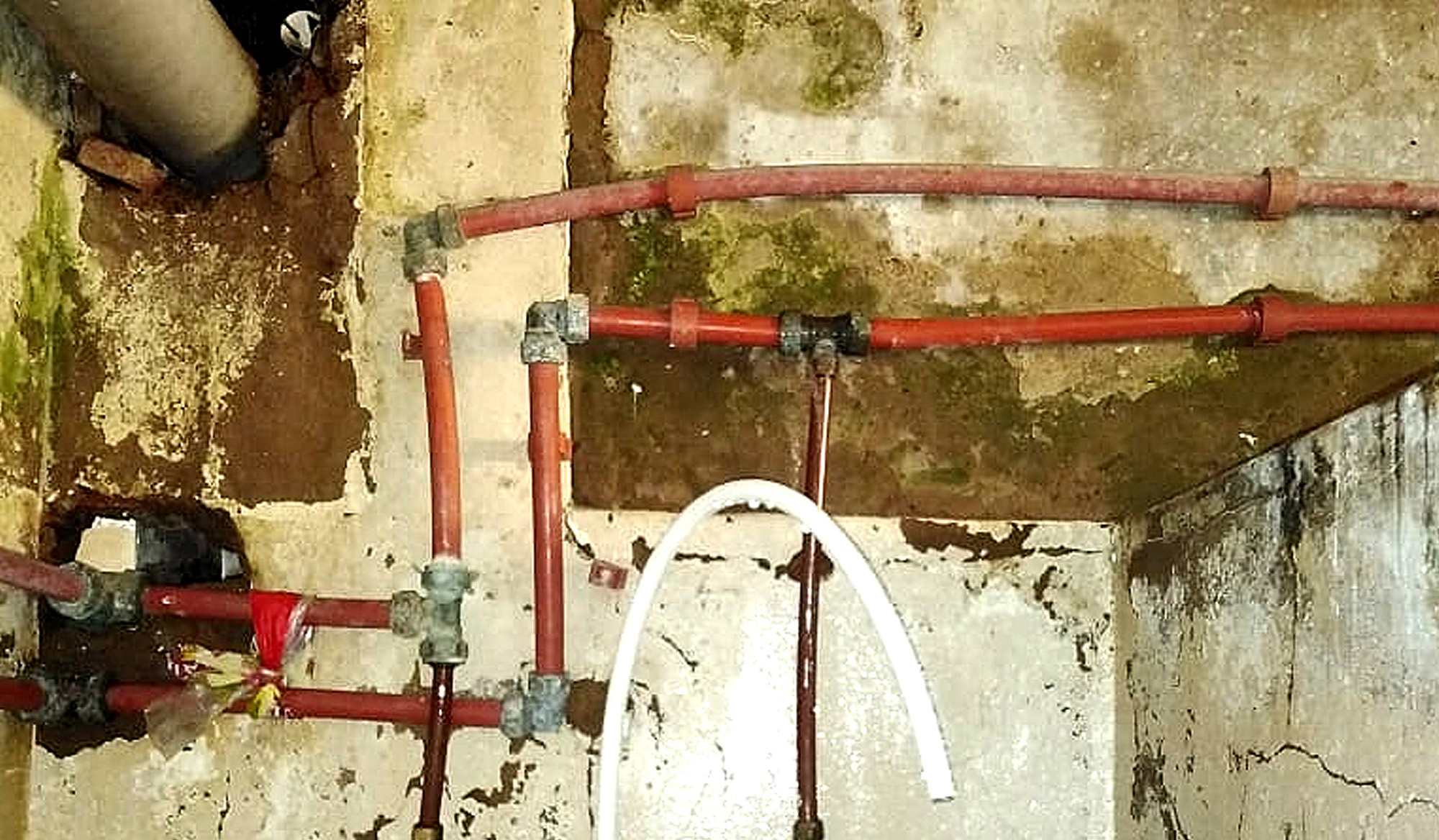
Sebethule Business Enterprise is contracted to undertake plumbing at Tehuis. (Photo supplied)
According to CIPC records, Khuzwayo registered the company – Sebethule Business Enterprise – on 12 June 2017, around the time he allegedly gained favour with Mthembu. Sebethule’s address is listed as Amandawe near Scottburgh on the KZN south coast. Residents reported that Khuzwayo is allegedly building a double-storey “mansion” at Amandawe and provided video footage of the elaborate construction. The 2016 valuation roll – the most recent available online for the area – lists several Amandawe properties registered under the name of Khuzwayo. But it could not be established if any belong to Tehuis’s Khuzwayo. Hostel sources allege that Mthembu’s cousin is in charge of the construction of Khuzwayo’s “mansion”.
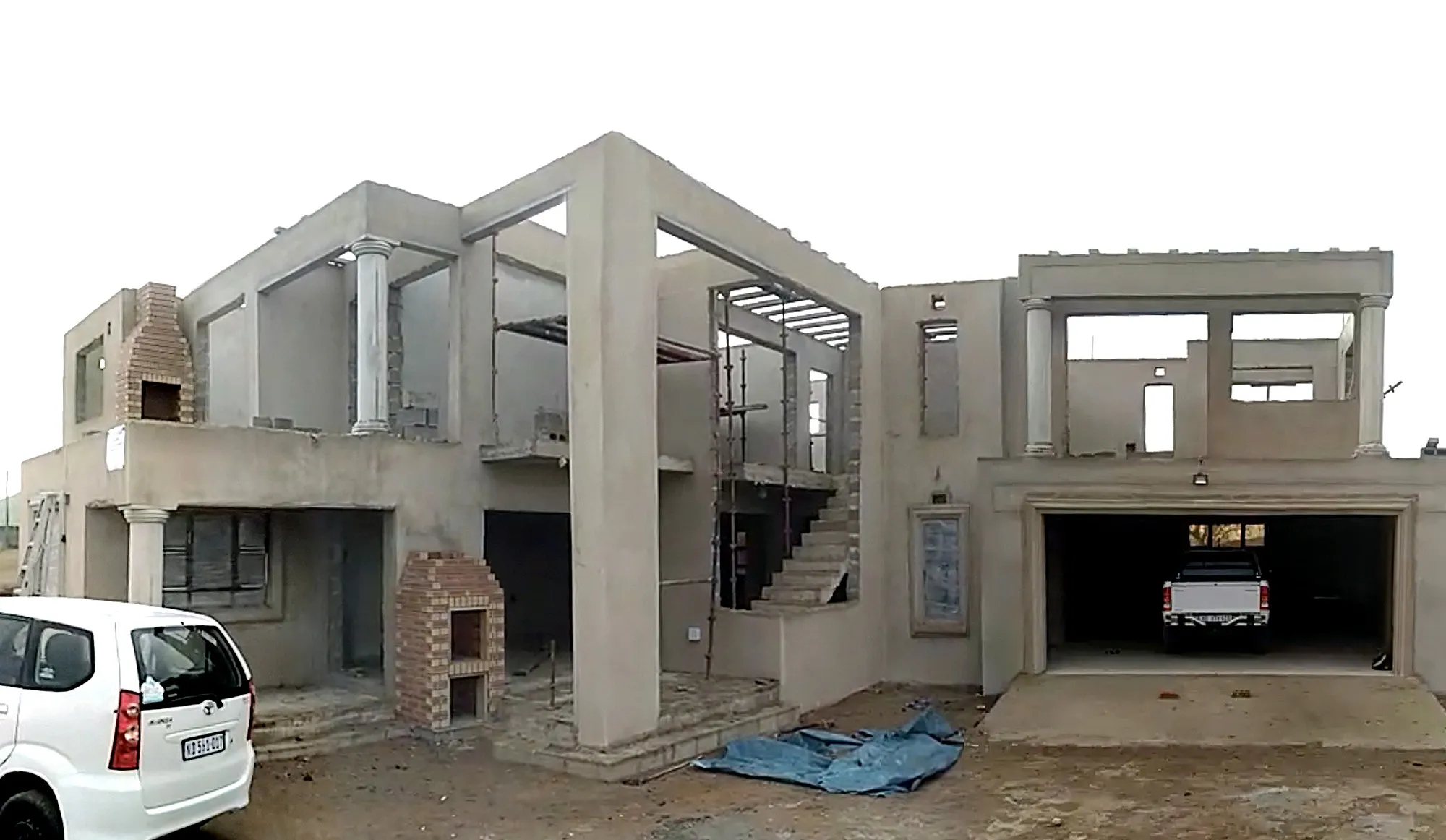
Screen grab from video provided by residents of the ‘mansion’ allegedly being built by Tehuis leader Mthokozisi Khuzwayo at Amandawe on the KwaZulu-Natal south coast. (Photo provided)
Khuzwayo was now doing so well, they claimed, that he bought a brand new Toyota Hilux bakkie – which retails for more than R300,000 – for cash. A white Toyota bakkie can be seen parked in the mansion’s triple garage. Khuzwayo also has a photograph of a white Toyota Hilux bakkie as his WhatsApp profile picture. Does someone who can afford to buy a several hundred-thousand-rand vehicle for cash really need low-cost hostel housing?
Residents reported that the Johannesburg-based company, Superfecta, manages procurement for Tehuis. There are a multitude of entities named Superfecta on the CIPC website. However, Superfecta Trading 209 appears to be the company involved at Tehuis. According to its website, Superfecta is a 100% black and majority female-owned Germiston-based facilities management, HR and payroll company that recently branched out into high voltage products.
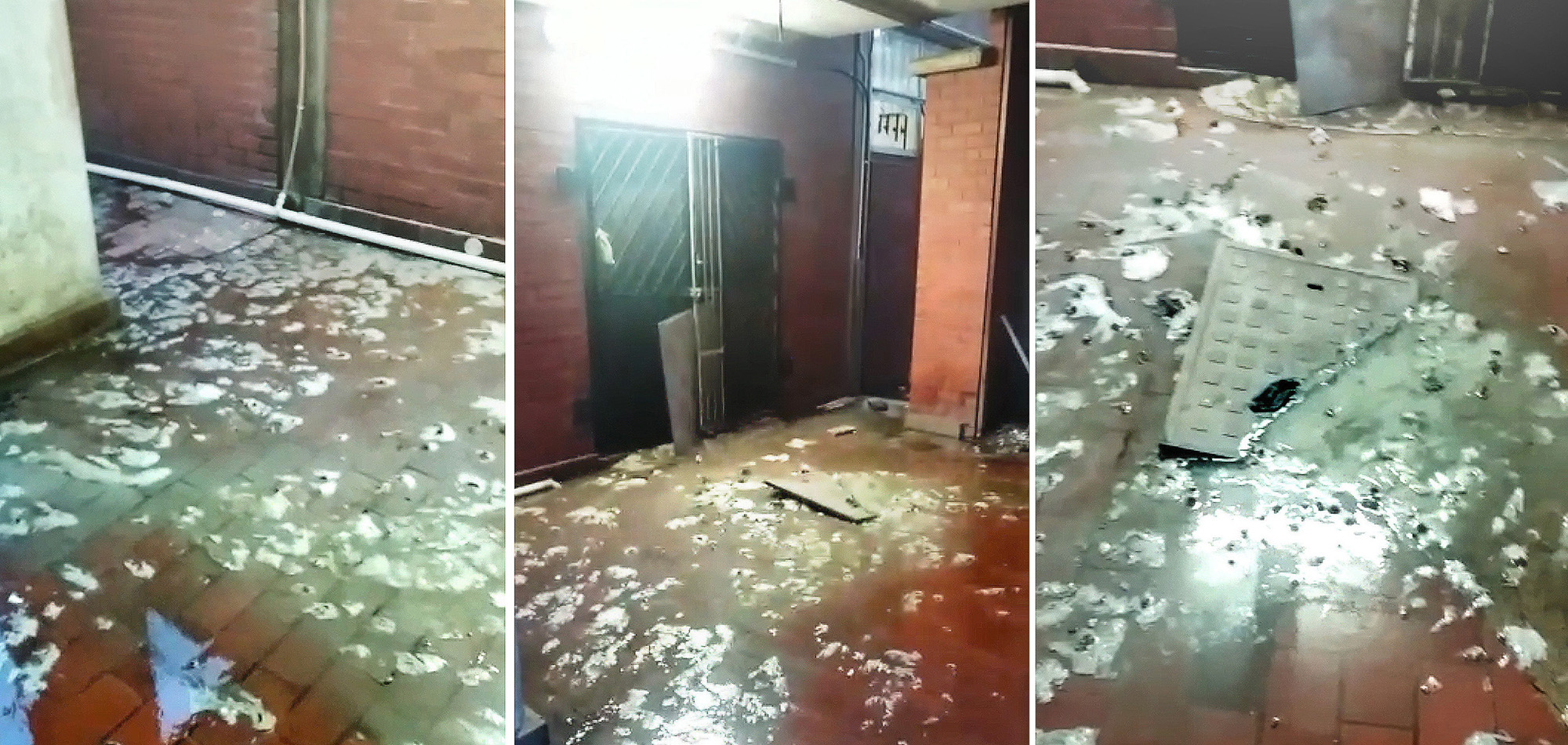
Screengrabs of video supplied by residents of the June 2020 sewage leak at Tehuis. (Photo: supplied)
In the same 2016 Prasa audit report, Superfecta 209 was found to be in violation of supply chain management procedures and civil action was recommended to recover almost R12-million. The report also recommended that Superfecta should be listed on the National Treasury’s Database of Restricted Suppliers.
In 2018, four companies including Superfecta Trading were referred to the Competition Commission Tribunal for prosecution for alleged price-fixing and tender collusion involving Eskom tenders worth R4.5-billion. Online investigation could not establish if any of these matters had been resolved. But on its website, Superfecta currently lists numerous state-owned enterprises, municipalities and government departments in its client portfolio and is still clearly doing business with the state.
It could not be established if both these incidents involved the same company. It is also unclear what services Superfecta provides that Transnet’s procurement and HR divisions cannot. In 2019, the auditor-general flagged almost R50-billion in irregular expenditure at Transnet, an amount falling not far short of the bailout South Africa recently sought from the IMF in the wake of the coronavirus.
Tehuis residents complained that Superfecta repeatedly renewed Sebethule’s contracts despite shoddy, incomplete or no discernible work having been done. Because there was no quality control or oversight, some repairs even had to be redone, they reported, resulting in further wasteful expenditure.
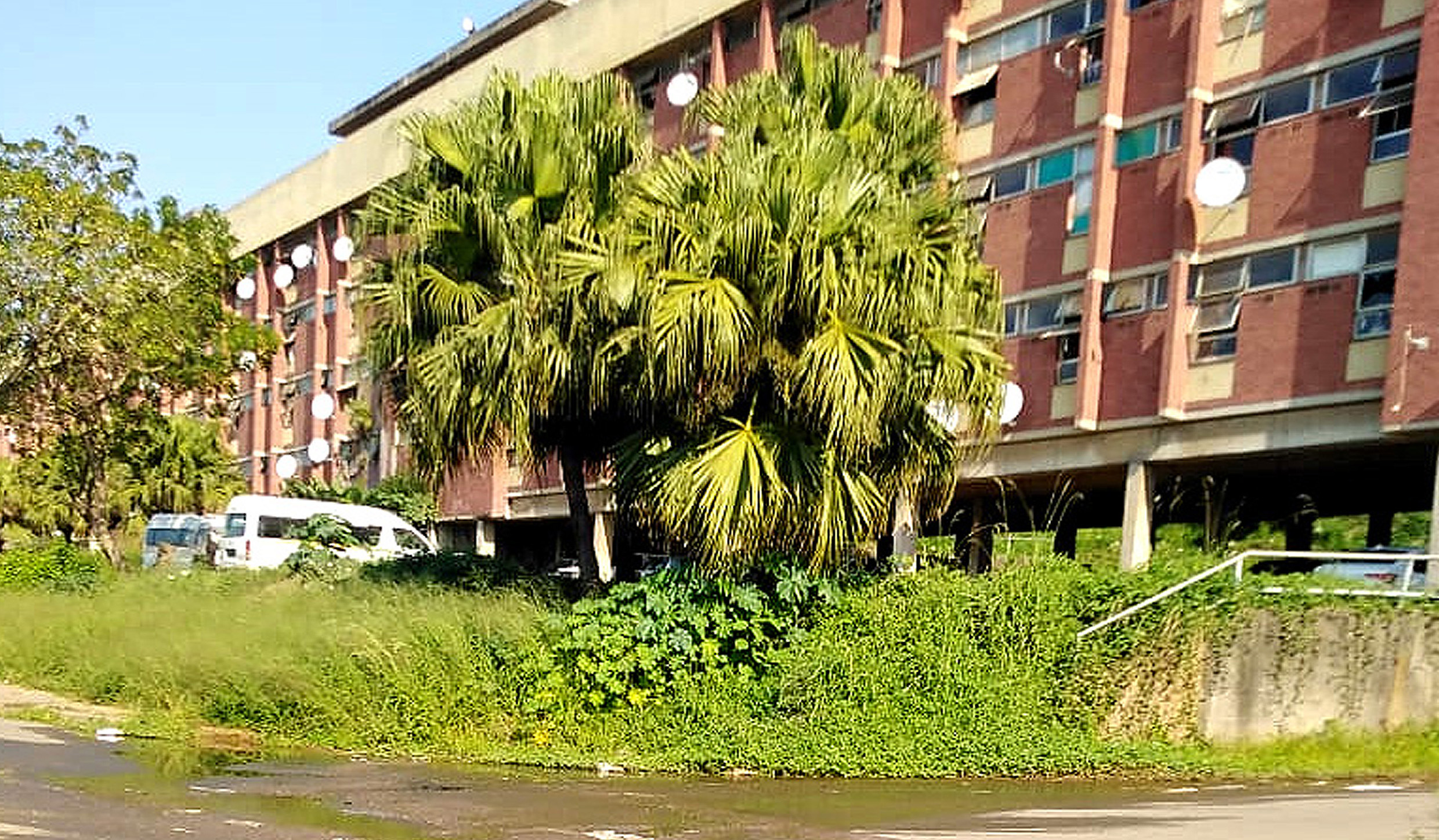
Grounds are neglected and water and sewage leaks are a permanent feature at Tehuis despite an on-site contractor being resident at the hostel. (Photo supplied)
Residents said Sebethule lacked capacity and described how in June 2020 a new contractor had to be sourced to repair a major sewage leak that inundated ground-floor passageways and flooded the road between Tehuis and Mega City Mall. Residents claimed that “Khuzwayo’s company does not have the tools for a big job like that”.
They said this delayed repairs for five days during which time the hostel’s soup kitchen was forced to close due to health concerns, thus depriving poor residents of their only access to food, while inconveniencing local shoppers, commuters, drivers and pedestrians who had to pick their way through raw sewage. Transnet’s failure to effect urgent repairs – an apparently regular occurrence – is particularly concerning at a time when the coronavirus pandemic presents a significantly heightened risk to the health of poor communities – many of whose immune systems are already compromised by HIV, TB and inadequate nutrition – and when hygienic and clean living conditions can mean the difference between life and death.
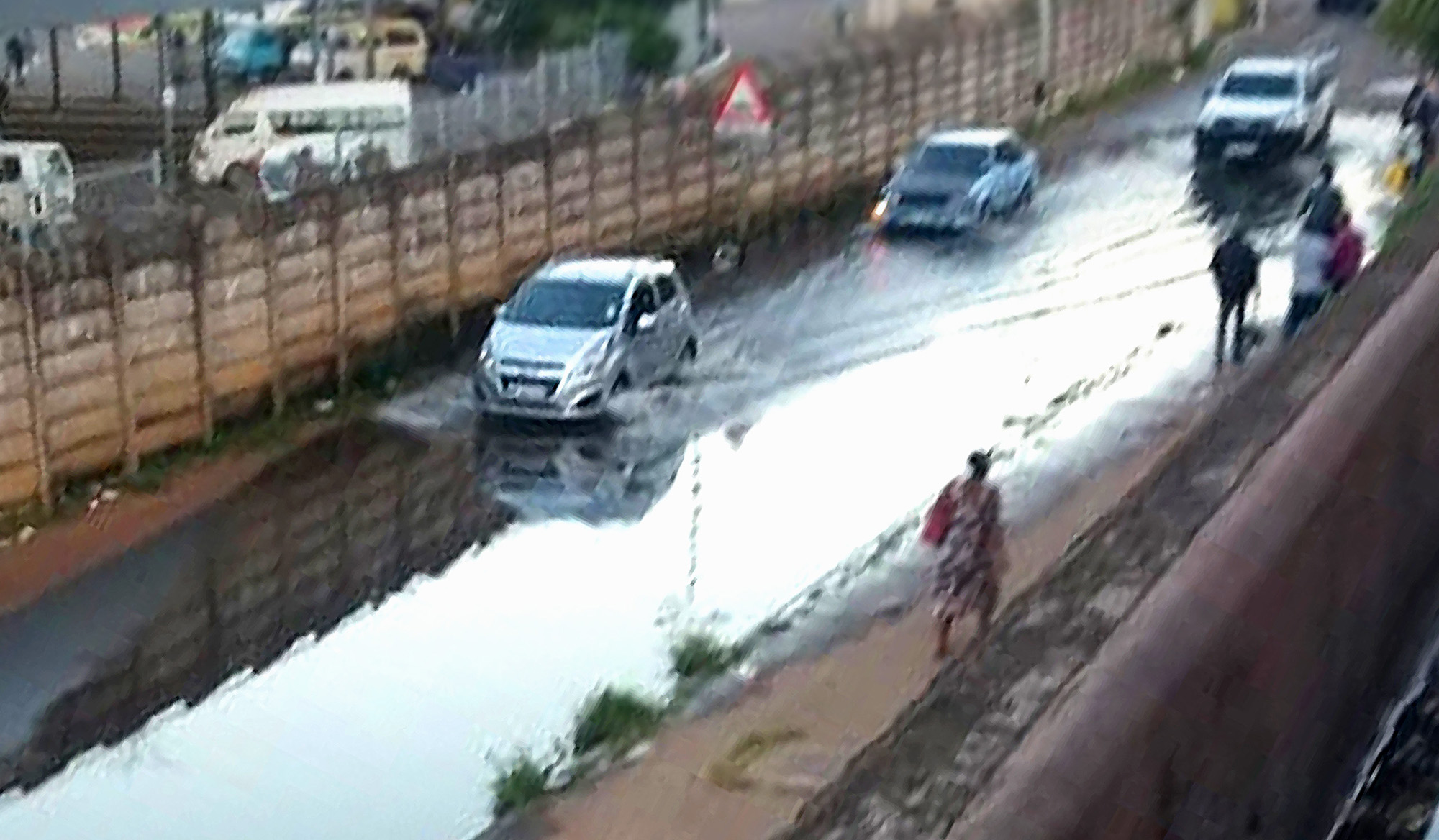
Sewage from Tehuis floods a road next to Mega City Mall and taxi rank in June 2020. (Photo supplied)
Former leaders complained that after taking over as chairperson, Khuzwayo allegedly tried to coerce Transnet to award his company a hostel cleaning contract. When this failed, he reportedly forced the closure of Transnet’s on-site office. As a result of the ensuing tensions and administrative collapse, residents say they have not paid rent for more than two years.
“Now the hostel is in a terrible condition, rubbish is not collected, water pipes are leaking everywhere and we have nowhere to report all this,” lamented one former leader.
Before Khuzwayo’s takeover, he said most residents had paid R100 a month rent. In this case it seems the office closure would have deprived Transnet of income of at least R12-million to date. He said they were mystified why Transnet had not instituted criminal charges or civil proceedings to recover its money instead of repeatedly renewing Khuzwayo’s company’s contracts. He claimed a Transnet employee “who is said to be working with Khuzwayo”, appeared to have since taken over some administrative functions such as processing Sebethule invoices.
But it seems that’s not all.

Repairs to a Block 13 retaining wall damaged during a 2017 storm have still not been completed despite a continuous parade of seemingly politically connected contractors. (Photo supplied)
Residents reported that a company initially hired to rebuild a retaining wall that collapsed at Block 13 during a 2017 storm left before the work was completed and was replaced by RGZ Projects. While RGZ was on-site the company allegedly dumped their rubble in an open area that had been used as a soccer pitch by hostel children, further depriving the community of one of their few remaining recreational areas. Even worse, they said, the repairs were still not completed before work was halted for the coronavirus lockdown in March, nearly three years since the damage happened.

RGZ Projects’ dumpsite — all that remains of Tehuis children’s soccer field. (Photo supplied)
It seems RGZ Projects also comes with a history.
Auditors Ngubane and Company first flagged the firm for housing construction fraud and corruption dating back to 2008 in a forensic report commissioned by the eThekwini audit and risk committee in 2011. The same year, the auditor-general found that RGZ Projects had flouted supply chain management regulations and benefited from irregular expenditure in the refurbishment of the city’s rental stock. At the time the Mail & Guardian also reported that RGZ formed part of a Special Investigating Unit probe into KZN housing projects, for which, if found guilty, could result in the recovery of any irregularly gained funds, possible prosecution and a 10-year ban on doing work for the government.
However, in June 2016 the eThekwini Municipality awarded RGZ further contracts, this time to “rectify” badly built low-cost housing units in Inanda. The previous year, Human Settlements Minister Lindiwe Sisulu had announced that the government would no longer finance the repair of defective housing.
RGZ is a known ANC funder. According to CIPC records, the company, previously owned by Reginald Zondo, was re-registered in 2014 under a different enterprise number, then in March 2020, Zondo resigned and Bonganini Zondo was registered as the new CEO. It is unknown what, if any, previous action was taken against the company, why it was reregistered under a new enterprise number and why it is still doing work for the state.
Most recently, RGZ made number two in the province’s top 15 Covid-19 procurement earners, scoring a cool R163-million for infrastructure upgrades at Scottburgh’s GJ Crookes Hospital. The auditor-general has been asked to investigate.
In early April community leaders said another company – KwaBhadama or Bhadama Projects – had taken over the Block 13 repairs. The company is not registered on the CIPC database — in fact, no trace of it could be found online.
It is unknown if any of the former contractors were paid for work undone, but Tehuis sources reported that KwaBhadama workers were complaining they were short-changed for work done to date amid confusion over whether the company had even been officially appointed.
Queries and requests for investigation into Tehuis contracts were sent to the National Treasury at the beginning of June and again in July, but to date, no response has been received.
Fear
Just over a month ago Khuzwayo reportedly convened a committee meeting during which members were allegedly plied with copious alcohol and braaied meat. He allegedly told those present that aggrieved former leaders were “just jealous because they’re hungry, they want to take my supper away”, and swore he would “never be removed.”
Khuzwayo allegedly told those present, “Some people, they came to me and asked, who is Majavu? Who spread this voice note? Where is this Majavu?”
Majavu is a former block leader who repeatedly accused Khuzwayo of nepotism, corruption and ethnic discrimination in a voice note that went viral at Tehuis.
Some leaders believe this was a threat because only strangers to Tehuis would need Majavu to be “pointed out”. And what business would these “strangers” want with Majavu, if not to kill him, they asked?
Their fears are well founded. In many of KZN’s political killings, hitmen are brought in from other areas to eliminate specific targets. Strangers to hostels who ask questions about specific individuals are infinitely suspicious as was proven countless times at Glebelands.
The former leaders said it sounded as if Khuzwayo was “holding [the strangers] back for now” but could unleash them at any time should his detractors – particularly Majavu – fail to toe the line. Khuzwayo had allegedly circulated the names and block numbers of residents – including Majavu – who had spoken out in the past. They said such things could easily become hit lists with the result that everyone becomes too scared to raise issues, once again echoing the fears of the Glebelands community at the height of the hostel carnage.
“Our lives are in danger,” one leader declared. “These people, they’ve got money. It looks like they’re buying supporters. People fear [Khuzwayo]. They know he’s got guns; sometimes he brings them to meetings. We can get killed and it’ll be untraceable. This guy is friends with the councillor and we know her.”
Sources not connected to Tehuis have reported that hitmen have already been inserted into the hostel although they could not say why, into which blocks, or who hired them. On 3 August, fearful community members alleged that a well-known hitman from Empangeni (his name is known) is now regularly seen in Khuzwayo’s company.
On the night of 21 August, Chatsworth police members raided Majavu and an associate’s rooms, ostensibly looking for firearms. It seems the Umlazi station commissioner had not been notified of the operation, as per standard SAPS procedure, and Majavu and his friend were apparently the only residents targeted. They believe Chatsworth officers were acting at Khuzwayo’s behest in an attempt to suppress further dissent.
Way forward?
All these allegations were reported to the SAPS, the SAHRC and National Treasury on 3 June. Two weeks later, the provincial SAPS sent a colonel to meet community representatives to assess the situation. Shortly thereafter, Department of Community Safety and Liaison representatives met Tehuis’s committee members, local police, the ward councillor and the ANC’s branch executive committee. The department committed to raise some of the community’s concerns with Transnet and revert for a follow-up meeting. This has not yet happened.
On 30 June former block leaders handed a petition detailing their grievances to Transnet’s regional manager, the Umlazi SAPS station commissioner, Department of Community Safety officials and former mayor Zandile Gumede (currently serving on the ANC’s regional task team to prepare branches for the 2021 municipal elections and recently appointed by the ANC to KZN’s provincial legislature).
Since then, and despite the submission of another petition, the community has failed to receive a response, the SAHRC is yet to confirm if it will investigate and the National Treasury has remained mum.
Over the past weekend, sources reported that Khuzwayo assaulted a resident who refused to be relocated from his room. The victim was taken to hospital and has since reported receiving threatening calls warning him not to report the incident to the police. Although some leaders are urging him to do so, it seems unlikely he will, given the rising levels of fear.
The longer tensions are left to foment, the more violent will be the ensuing chaos. At Glebelands, the police, all tiers of government and the ANC had five years warning about the issues that later culminated in the death, displacement and dispossession of hundreds of people and a SAPS-detective-led hit squad that operated across the province. Will they allow something similar to happen at Tehuis?
Repeated omission to act serves only one agenda – orchestrated anarchy so the political elite can gorge undisturbed on what remains of their most marginalised constituents. Or as one Glebelands leader used to say, “they are growing fat from our blood”.
With Zandile Gumede (in theory) facing potential jail time and trying to claw back the regional leadership position ahead of the 2021 municipal elections, and the ANC’s radical economic transformation faction – of which Gumede is a self-avowed champion – gathering for a showdown against Ramaphosa’s so-called “constitutionalists” in the next general elections, it is likely every government department, state functionary and every downtrodden, neglected and politically abused community such as Tehuis, will be drawn into what is likely to become the ANC’s most bloody and bitter war yet.
There will be no winners in this war. Only losers. And many, many dead. DM
The government risks Tehuis hostel becoming the next Glebelands (Part 1)


















 Become an Insider
Become an Insider